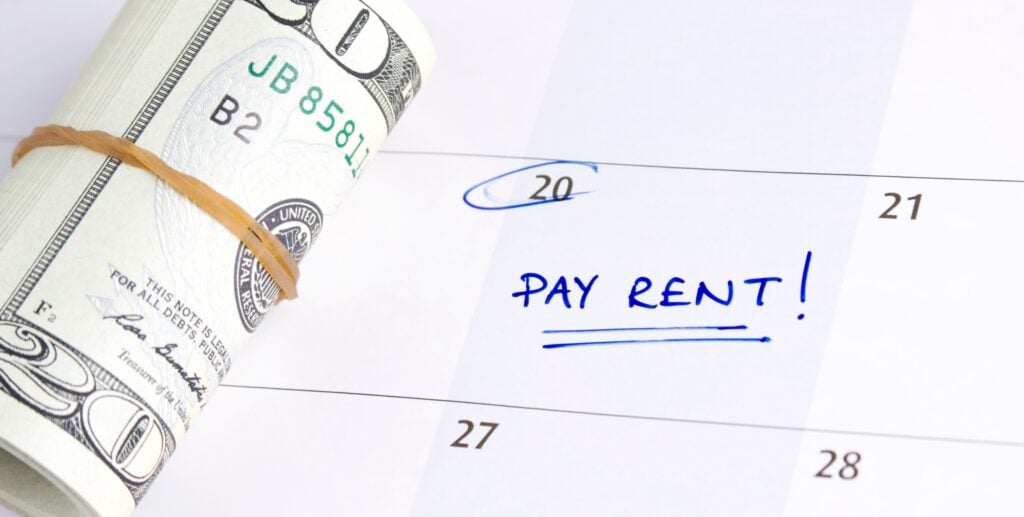This article is presented by TurboTenant.
There was a time when I thought I was doing just fine collecting rent. I had tenants sending me money through Zelle, dropping off checks like I was a bank branch, and one guy handed me an envelope full of $20 bills at a gas station, as if we were doing a bad rendition of Breaking Bad.
That’s when it hit me: I was running a real estate business, but I was collecting rent like someone selling concert tickets on Craigslist. And in the real estate game, the way you collect money is just as important as how you make it.
If you’re a landlord or investor still relying on Venmo, Cash App, Zelle, checks, or cash to receive monthly payments, let’s have an honest conversation, because it’s not just outdated. It’s dangerous.
The Illusion of Control
DIY rent collection gives you the illusion of control—right up until a tenant texts you, “Hey, can I pay half now and the rest on Friday?” or claims they “definitely sent it,” and you’re staring at a bank balance that says otherwise.
Venmo might be great for splitting dinner, and Zelle might be convenient for sending your friend gas money. However, they were not designed for recurring rent payments, legal accountability, or operating a professional business. There’s no audit trail. No enforcement. No system.
And without a system, you don’t have a business. You have a hobby that can be expensive when things go wrong.
The Weirdest Rent Payments I’ve Ever Received
Over the years, I’ve received rent through:
- An envelope taped to the underside of a grill cover
- A Cash App transfer that was 92 cents short, with a pizza emoji in the memo line
- And once, a money order was delivered four days late because the tenant’s “aunt forgot to mail it.”
And I’m not even a property manager with hundreds of doors. I’m a hands-on investor who just made the mistake of trying to be too casual with something that needs to be very not casual.
Because here’s what happens when you let rent payments live in the Wild West:
- You get blamed when tenants forget to pay.
- You have no legal record of payment if things go sideways.
- You can’t prove when a payment was received or processed.
- You constantly play the role of “rent cop” in your own business.
And let’s not forget that in some states, you are legally required to provide a rent receipt for each payment. That means if you’re collecting cash or letting Zelle handle the transfer, you might already be out of compliance.
Here’s the full list of states that require rent receipts, in case you’re wondering if this is one of those “other people” problems. Spoiler: It probably isn’t.
Why This Matters for Investors
When you own one rental, you can get away with being scrappy. When you own five, you need systems in place. And when you own 20, you need automation.
However, no matter how many properties you have, collecting rent manually is like driving cross-country with no GPS and hoping the map in your glove box is up-to-date.
Rent is your revenue stream, and your cash flow is the lifeblood—the thing that keeps the mortgage paid and the investment worth holding. So why risk it all on a flaky transfer app or a tenant who forgets every due date? If you treat your rentals like a business, then collecting rent should feel like running payroll, not chasing people down like a debt collector from a bad sitcom.
What You Should Be Using Instead
That’s where TurboTenant comes in. It’s software designed for landlords, whether you have one unit or 100, and it automates the tasks that are usually stressful, awkward, or just plain annoying.
Here’s what it does that your Venmo account doesn’t:
- Sends automatic rent reminders so you’re not the bad guy
- Issues digital rent receipts, which are legally required in some states
- Lets tenants set up autopay, which means more on-time payments
- Adds custom late fees that tenants can’t ignore (here’s how auto late fees work)
- Tracks every payment, date, and amount for you—no more guesswork
- Has zero transfer fees or withdrawal limits
- Offers rent reporting, so tenants can build credit just by paying on time
That last one is huge. Because when tenants know their on-time payments are helping their credit score, they tend to prioritize rent over… well, just about everything else.
So instead of constantly asking, “Did they pay yet?” you get to ask better questions like, “How do I reinvest this month’s cash flow?”
This Is How You Protect Your Time
Every minute you spend reminding someone to pay rent is a minute you could spend finding your next deal, improving your existing portfolio, or simply having a life.
Real estate investing isn’t just about acquiring property. It’s about developing systems and using tools like TurboTenant that let you own property without being owned by it. Rent collection is one of the first places investors should stop winging it.
So if you’re still cashing checks at a bank or waiting for a sketchy Zelle transfer to hit your account, it’s time. Collect rent online, and never look back.
Because you can’t scale chaos, but you can scale a system.













